

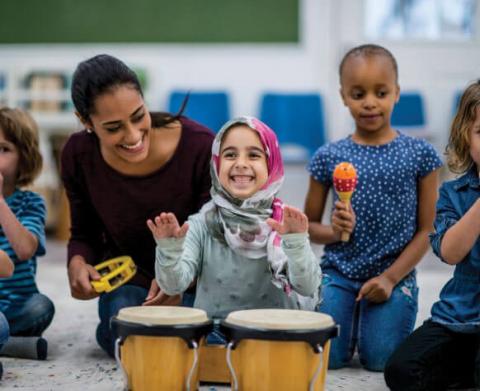
United Way of Central Carolinas
leads two initiatives to increase equity and support new partners across the region. Following civic unrest in 2016, United Way and other community partners raised funds for Unite Charlotte to provide community grants to increase access to smaller grassroots organizations. An entire grant cycle was devoted to capacity building to increase opportunities for longer-term funding as one step in recognition of the time it takes to nurture and foster strong relationships. United Way also began working to transform and revitalize neighborhoods through United Neighborhoods while using real-time feedback from community members to inform initiatives, with the aspirational goal of being 100% resident-led. They have had conversations with their traditional partners about race and equity which strengthened their business ties. These two new strategies have created more access for local grassroots organizations, capacity building, and racial equity trainings to organizations.
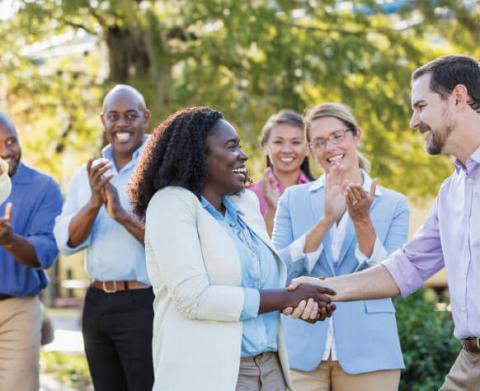
United Way of Santa Cruz County (UWSCC)
helped launch the Youth Violence Prevention Task-Force (YVPT) and county-wide strategic planning process in 2012 in partnership with Santa Cruz County Criminal Justice Council. This issue of youth violence (especially for youth of color) effects Santa Cruz County more than almost any county in the United States. Within a year, The Youth Violence Prevention Task Force completed the first Status on Youth Violence report for Santa Cruz County. Representing input from over 200 stakeholders through two community summits and monthly task force meetings, the report presents local primary and secondary data on over 60 indicators that are known risk and protective factors for youth violence. This outreach included communities that UWSCC typically does not hear from: focus groups in English and Spanish, migrant parents, and grass roots and social justice organizations
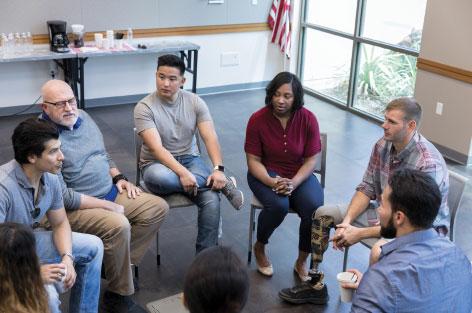
United Way of Central Alabama
and local partners established the Jefferson County Health Action Partnership (HAP) in 2007 to address health disparities and improve the health of Jefferson County Residents. The reports highlight areas of greatest need and continue to play an important part in raising community awareness of the social determinants of health. As a result of releasing the reports, health equity discussions have been brought to the forefront within the community and there has been an ever-increasing demand for local training on equity, diversity, and inclusion. To date, over 1,400 individuals have received training on health equity and the social determinants of health, including staff at United Way of Central Alabama. The Health Action Partnership has an accountability structure in place to align community-based work with health equity guiding principles. Next steps for UWCA include creating health equity reports for the additional four counties in the UWCA service area.
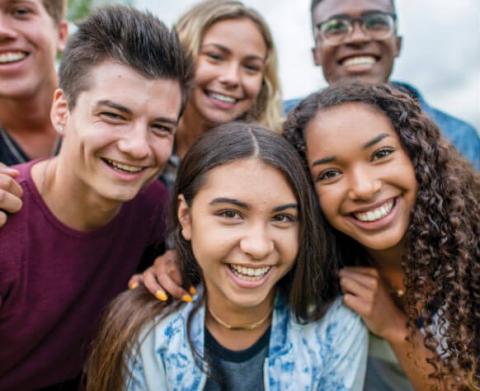
United Way of Racine County
engaged more than 400 residents in kitchen table style conversations about challenges, aspirations, and goals related to race, equity, and inclusion. Resulting action steps from the conversations included the creation of a Declaration of Inclusion, the development of a Diversity Council to engage business leaders to create diverse, supportive workplaces, and hosting a community event to celebrate community-wide diversity.

United Way of Central Maryland (UWCM)
brought the Race Card, a program of the Aspen Institute, to the greater Baltimore community. This helped United Way get acquainted with residents from over 48 neighborhoods and facilitate conversations at major events. United Way used the Race Card to engage 500 women leaders at the Women United Forum, as well as to engage over 400 homeless individuals at Project Homeless Connect. The information gathered through this process helped to provide direction for the strategic plan and set the course for the next 6 years. The overarching objectives for the plan were set as a result of this project, one of which is that fewer people living as ALICE (asset limited, income constrained, and employed). These efforts helped UWCM to form new and strengthen some relationships, both with existing partners and with community members. It gave credibility in their desire to keep equity at the forefront of our work.
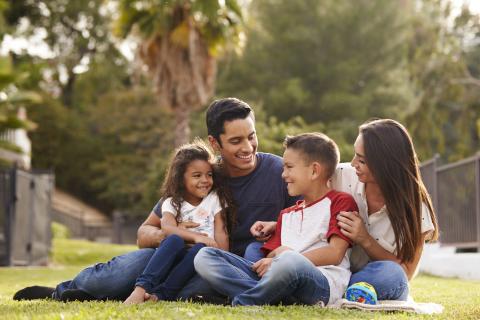
United Way of Anchorage
leads 90% Graduation by 2020, a community collaboration that coordinates partners, builds public will, mobilizes funding, and engages volunteers in the effort to reach a 90% graduation rate by the year 2020. A key component of the collaboration is the #NOLABELS media campaign, which challenges commonly held assumptions about students who struggle to graduate from high school. The campaign draws attention to the non-school barriers that some students face and asks everyone to look beyond the stereotypes that are traditionally associated with low income and/or students of color.
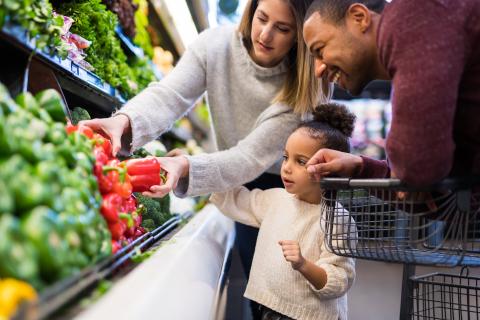
United Way of Washtenaw County
is committed to equity as a core value and practice to advance its mission, fundamentally changing its approach to the work and the work itself. With the idea that zip code no longer predicts opportunity, one approach they are using to engage more individuals and make new connections is the 21 Day Equity Challenge. The 21 Day Equity Challenge is a self-guided learning journey with examples and tools that examine the history and impact of racism and how it shapes people’s lived experiences in Washtenaw County. The Challenge was developed by Dr. Eddie Moore, Jr., Dr. Marguerite Penick-Parks, and Debby Irving. Over 4,000 people are participating in the challenge and new groups are connecting with United Way. The 21 Day Equity Challenge is one piece that builds momentum for the larger DEI work that includes getting involved in public policy, changing internal processes, and grantmaking processes

United Way of Greater Atlanta (UWGA)
launched the African American Partners affinity group in 2000 to proactively engage members of the African American community who were historically under-represented in United Way’s giving societies. Members give $1,000 annually and UWGA provides the group opportunities for networking, advocacy, and volunteerism. In recent years AAP members and UWGA staff identified working with African American male youth in Atlanta as a priority. Members help plan and staff volunteer events, including a day of service to address summer slide, STEM workshops that involve local companies (AT & T, Delta, Georgia Power) and pair youth with AAP mentors for the day. In 2016, over 1,000 members donated $2.2 million to the United Way of Greater Atlanta.

United Way of Southeast Louisiana
embarked on a journey five years ago, to determine its relevance in its seven-parish service area. Over sixty community conversations brought to light that poverty had to be viewed through the lenses of equity, racism, and family. As a result, United Way of Southeast Louisiana co-developed the Blueprint for Prosperity with thought partners. The Prosperity Dashboard tracks the progress of population-level equity indicators in the Blueprint for Prosperity. The Prosperity Dashboard is available at https://www.unitedwayseladashboard.org/. In the 2018 program grant process, agencies were given the option to earn extra points by completing an equity audit. Ninety-eight percent of applicants completed the equity audit. Twenty new partners received funding and were allowed to have a fiscal agent in the grant cycle, including partners who may not have received funding in the past. Looking forward, United Way of Southeastern Louisiana is seeking funding to support an Equity Cohort for agencies to learn and grow together.

United Way of the Greater Triangle
“10 to Watch” is a strategic investment opportunity that creates exclusive funding for historically underrepresented and under-resourced nonprofit leaders and their organizations. Through an analysis of its partner portfolio, United Way of the Greater Triangle (UWGT) determined that people of color (African American and Hispanics) represented 85% of those served through our Impact investing. However, less than 20% of the organizations UWGT invested in were led by people of color. Additional analysis revealed that organizations led by men possessed three times the assets of organizations led by women. 10 to Watch begins to address these disparities. In addition to a two-year commitment of unrestricted dollars ($500K in total), 10 to Watch participants benefit from leveraging UWGT’s access to boardrooms and decision-making tables. By participating in conversations held in rooms they normally would not be in, the outcomes are broader networks, broader influence, and broader visibility. 10 to Watch leaders are more connected to the Triangle’s philanthropy ecosystem, resulting in increased revenue and relationships. Lastly, through a partnership with Leadership Triangle, a premier leadership development organization, leaders have the opportunities to build the personal leadership abilities all leaders need to be successful.
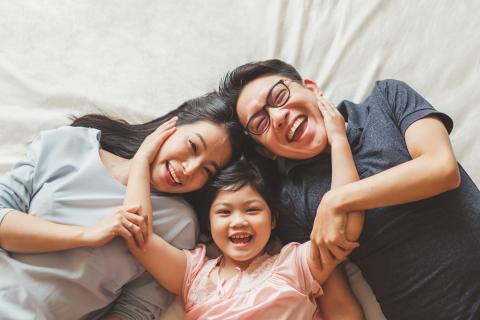
United Way of Central Ohio
merged two programs in 2018, focused on supporting diverse nonprofit board leadership. Project Diversity Pride Leadership is a training program with an intense six-month curriculum to prepare racial/ethnic minorities and people in the LGBTQ+ community to be effective nonprofit board members. A survey conducted by United Way of Central Ohio in 2019 confirmed central Ohio nonprofit boards are not diverse in comparison to county demographics. As a result, a goal has been set for nonprofit boards to reflect county demographics by 2025. Research has confirmed the best decisions are made when everyone has a seat at the table and can contribute diverse perspectives. Project Diversity Pride Leadership has more than 700 graduates with over 65 percent having served or currently serving on nonprofit boards. Local companies are actively involved by identifying associates to participate and represent the organization through its corporate social responsibility. United Way of Central Ohio’s Neighborhood Leadership Center also invests in the capability of its residents to lead the change in their communities. ecosystem, resulting in increased revenue and relationships. Lastly, through a partnership with Leadership Triangle, a premier leadership development organization, leaders have the opportunities to build the personal leadership abilities all leaders need to be successful.

United Way of Metropolitan Dallas (UWMD)
is exploring how to support communities that are largely served by grassroots organizations. These organizations, with tremendous historical and community knowledge, lacked access to the philanthropic sector due to structural barriers such as audited financials, insurance, or basic marketing. By partnering with the University of North Texas at Dallas and the State Fair of Texas, UWMD convened a 6-month, 40-hour course that culminated in a Pitch Day for capacity-building grants. 90% of the organizations were minority-led, 90% of the organizations were women-led, and funding allowed agencies to invest in financial audits and marketing materials. This capacity-building work is making a difference in ensuring equitable opportunity and access to grassroots organizations, many of which are women and minority-owned and operated. The current and anticipated results are inclusive of putting organizations in a position where they can effectively apply for and secure funding from larger entities to expand their organizational scope and impact capacity. We learned that executive directors of small nonprofits generally don’t have the time or capacity to attend trainings, and this opportunity provided them with space and time to think strategically about their work. Through the utilization of resources such as collective partnership impact, organizational capacity building, and leveraging relationships, United Way Metropolitan Dallas was reminded of the importance that creating equitable spaces for grassroots organizations in ensuring an inclusive landscape within the nonprofit sector.
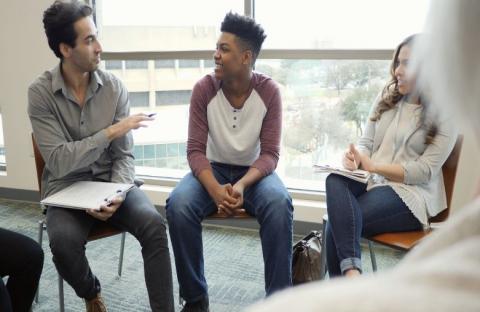
United Way of Greater St. Louis (UWGSL)
knows how crucial it is to have equitable practices and understanding in a system. The death of Michael Brown in Ferguson, MO became a symbol for the racial strife and inequality that exists throughout the United States. Missouri’s Governor asked a group of regional leaders — The Ferguson Commission — to study the situation and prove a path toward change. UWGSL has worked closely with The Ferguson Commission to help inform their own priorities and build their internal capacity. UWGSL recently received a grant to develop a ‘racial equity indicator dashboard’ in response to The Ferguson Commission's call for a racial equity benchmarking process. The Equity Indicators Dashboard will be regionally launched with key partners and will serve as a road map for "the work" toward an equitable region, highlighting continued racial disparities and facilitating accountability in alignment with the Ferguson Commission's regional calls to action. UWGSL will use this dashboard as a guide for their Impact agenda. Additionally, grant funding supported the execution of intentional learning opportunities for the UWGSL’s core management team as identified in their Path to Racial Equity Framework adopted in November 2017.

United Way Washtenaw County (UWWC)
is building the capacity of local nonprofits to develop their own DEI agenda and elevating community conversations about DEI. 30+ local nonprofits participated in a series of DEI workshops UWWC funded and co-developed on how to develop an agency specific equity lens in governance and operational practices with Nonprofit Enterprise at Work (NEW), a local management support organization. Funding the development and implementation by NEW of The Leaders of Color Fellowship an intensive 6-month cohort-based program that seeks to change the face of leadership in Washtenaw County by investing in local leaders of color from the nonprofit, public, private and municipal sectors.

United Way of Jackson County (UWJC)
has always done equity work and has now formalized it with a Diversity, Equity and Inclusion Council. The purpose of the council is to act as advocate, facilitator and convener of education, information and accountability for the continuous learning journey of cultural agility for the United Way of Jackson County. Responsibilities of the Diversity, Equity and Inclusion Council include:
- Promote diversity, equity and inclusion in the committee, council, board and staff of the organization.
- Develop leaders who are educated and aware of diversity, equity and inclusion.
- Develop baseline information on where the organization is annually and design a work plan to increase cultural agility.
- Work within the organizational structure to ensure policies and procedures are in place to honor diversity, equity and inclusion.
- Represent the organization in the external environment on issues related to diversity, equity and inclusion.
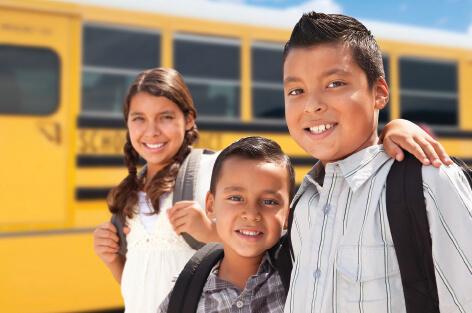
Heart of Missouri United Way
works to track community-wide disaggregated outcomes in collaboration with the local funding. collaborative which includes United Way, The City of Columbia/Boone County Public Health Department, and Boone County Children Services fund, called Boone Impact Group, and in partnership with the University of Missouri Institute of Public Policy. Equity Analysis on the Boone Indicators Dashboard include disaggregated measures for juvenile delinquency, child poverty rate, infant mortality, heart disease mortality, diabetes hospitalizations, median household income, third grade reading proficiency, and high school graduation rate. In Columbia Public Schools, English Arts MAP scores demonstrate disparities in outcomes: 13.4% of Black 3rd grade students test proficient or advanced, while 55.2% of white students test the same. Heart of Missouri United Way removes one barrier to literacy by getting kids their very own books. Read Across Columbia puts inclusive book titles into the hands of all first and second grade students at our five elementary schools with the lowest reading proficiency scores and highest free-and-reduced lunch rates. These same schools are also the most diverse in our district. Each Fall and Spring, United Way volunteers pack bookbags with 4 books plus one coupon for a free book from Daniel Boone Regional Library, for approximately 650 kids.
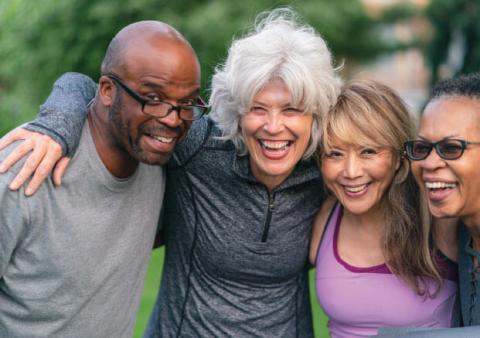
United Way of Santa Cruz County (UWSCC)
is contracted through Santa Cruz County Probation to coordinate and lead the Santa Cruz County Shared Safety efforts. In response to recent increases in crime and violence in Watsonville, California, as well as an increase in conversations on the role of policing in the community, in the spring of 2021, United Way of Santa Cruz County partnered with Communities Organized for Relational Power in Action (COPA), Santa Cruz County Youth Action Network, United 4 Youth, and our other partners representing Community Health Trust of Pajaro Valley, Santa Cruz County Children’s Behavioral Health, Santa Cruz County District Attorney’s Office, Santa Cruz County Office of Education, Watsonville City Council, Watsonville City Parks and Recreation, Watsonville Police Department to host two Watsonville Shared Safety Community Dialogues. This program engaged 40 youth and survivors of crime and included 35 system partners and volunteers. All recommendations were submitted to Watsonville’s Ad Hoc Committee for Policing and Social Equity. UWSCC has already supported the City with some of the recommendations, for example compiling a resource directory of all youth-serving programs, breaking down low-cost no-cost programs. Additionally, the City plans to tap into the Shared Safety efforts to support strengthening trust between law enforcement and survivors of crime and youth.
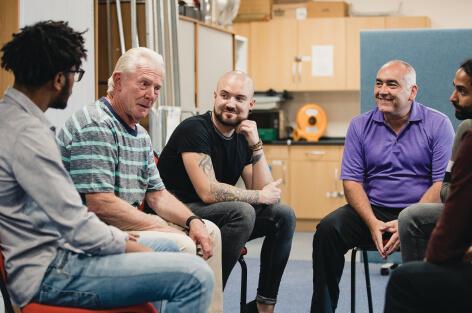
United Way of Madison County (AL) Inc
In order to intentionally increase the diversity of volunteer groups, Community Impact Staff engaged masters' level social work interns in crafting a "pre-post" survey to evaluate any group of volunteers (board, CI Impact Teams, Loaned executives, community volunteers, etc.) in terms of: 1) setting a baseline for current diversity, across many spectra, and 2) recruiting to the "gaps" and then re-evaluating the new additions and combining those findings with the "pre" survey participants to arrive at an objective means of assessing an increase in diversity with these core groups. By the end of 2021, United Way of Madison County will have a much more diverse group of volunteers to head into allocation work in early 2022. That will allow it to take its determinations of partners to a new level.
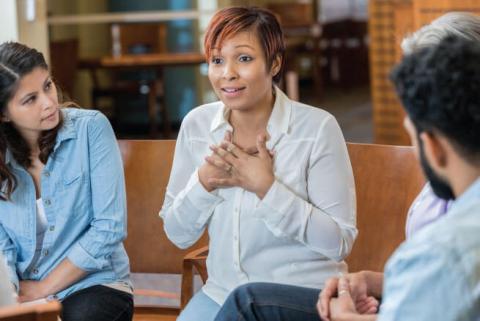
United Way of Alberta Capital Region
The Board of Directors have developed a Statement on Equity and Inclusion, participated in relevant EDI training and will be using the Global Diversity Equity and Inclusion Benchmarks (GDEIB) to assess the current level of organizational achievement toward best practice specific to the foundational elements that drive strategy: 1: Vision, Strategy, and Business Impact, and 2: Leadership and Accountability. Results of this assessment will inform the next action plan to advance the organization. GDEIB will be utilized to engage all staff teams in assessing our current state related to Attracting and Retaining People, Aligning and Connecting Work, and Listening to & Serving Society. These results will inform action plans for the coming years, to advance the organization toward best practice.

United Way of Metropolitan Dallas (UWMD)
The Community Impact staff at UWMD are revamping our multi-year Community Impact Grantmaking process to incorporate racial equity in both the application itself and in the process associated with those grants. In addition to the work done by those staff, a sub-committee of the Racial Equity Council is also involved in the project providing feedback with a racial equity lens. Using this work and the framework of Trust Based Grantmaking United Way is implementing those changes in our next multiyear grantmaking process. The goal for this effort is help ensure that our grant making is done through a Racial Equity Lens and that we will fund efforts that overtly address racial disparities in communities of color in Education, Income, and Health. We are also taking steps to reduce barriers that organizations face in applying for funding, diversifying our network of partners, recruiting grant evaluator volunteers that are in the communities where funding is awarded, streamlining the application and reporting associated with the grant, and building relationships with grantees in our community.
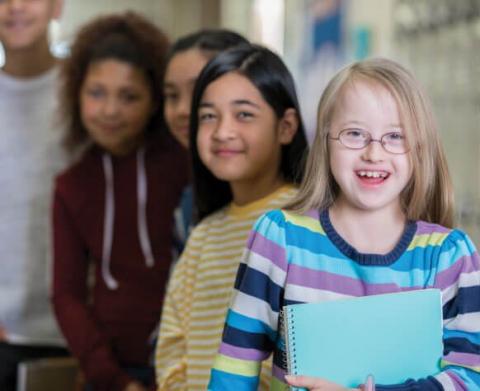
United Way of Northern Nevada (UWNNS)
launched the 10-month Equity Learning Community in February 2021. The Equity Learning Community's goal is to build the cultural competence of northern Nevada nonprofit organizations and guide them in creating equity action plans to address existing disparities in hiring, promotions, retention, operations, and programming. Sessions were organized into three groups. The first group of sessions (February – April) focused on building individual capacity for equity work. The topics covered during this group were defining key concepts (i.e., equity, equality, racism, inclusion, accessibility). The second group of sessions (May-June) focused on an organization's relationship with the larger community and the population(s) it serves. These two sessions focused on understanding an organization's history, being aware of trauma dynamics, equitable engagement, and change management as a relationship-building tool. The final group of sessions (July – November) focused on creating equity within the organization. These sessions focused on building the equity capacity of the organization, building an equity committee, establishing shared language, and understanding dominant culture. UWNNS met one-on-one with organizations between August and October 2021 to check-in and provide additional support. During the meetings, representatives indicated the value of the Equity Learning Community, the opportunity to build community with fellow nonprofits, and the structure and resources provided that help guide their internal work at their organization.
Copy of Equity Toolkit – Overview
Advancing Equity In Your Organization
Content integrated from the Equity Toolkit is designed to build the internal capacity of local United Ways to become more equitable ORGANIZATIONS. This includes strategies, tips, process related to implementing equitable internal practices in hiring, retention, promotions, organizational leadership, board representation and all internal United Way work processes.
This toolkit is designed to support you in being bold and effective on your race, equity and inclusion journey. It focuses on what you might consider “getting your own house in order”—building our understanding of the core issues; building our organizational capacity to focus on race, equity and inclusion; and creating supportive and thriving work places for our staff so that we can mirror an inclusive culture as we go out into the community.
Whether your United Way is small or large, with few or many staff, you’ll find guidelines, tools and stories here to support you on your journey. Please dive in. Get ready and practice equity daily! The UWW Diversity, Equity and Inclusion and Community Impact Teams are also available to support your thinking and practice. If you’re reading this toolkit in hardcopy, you can request a PDF version from the UWW Diversity, Equity and Inclusion Team. That will enable you to use the many links that are embedded throughout the document.
